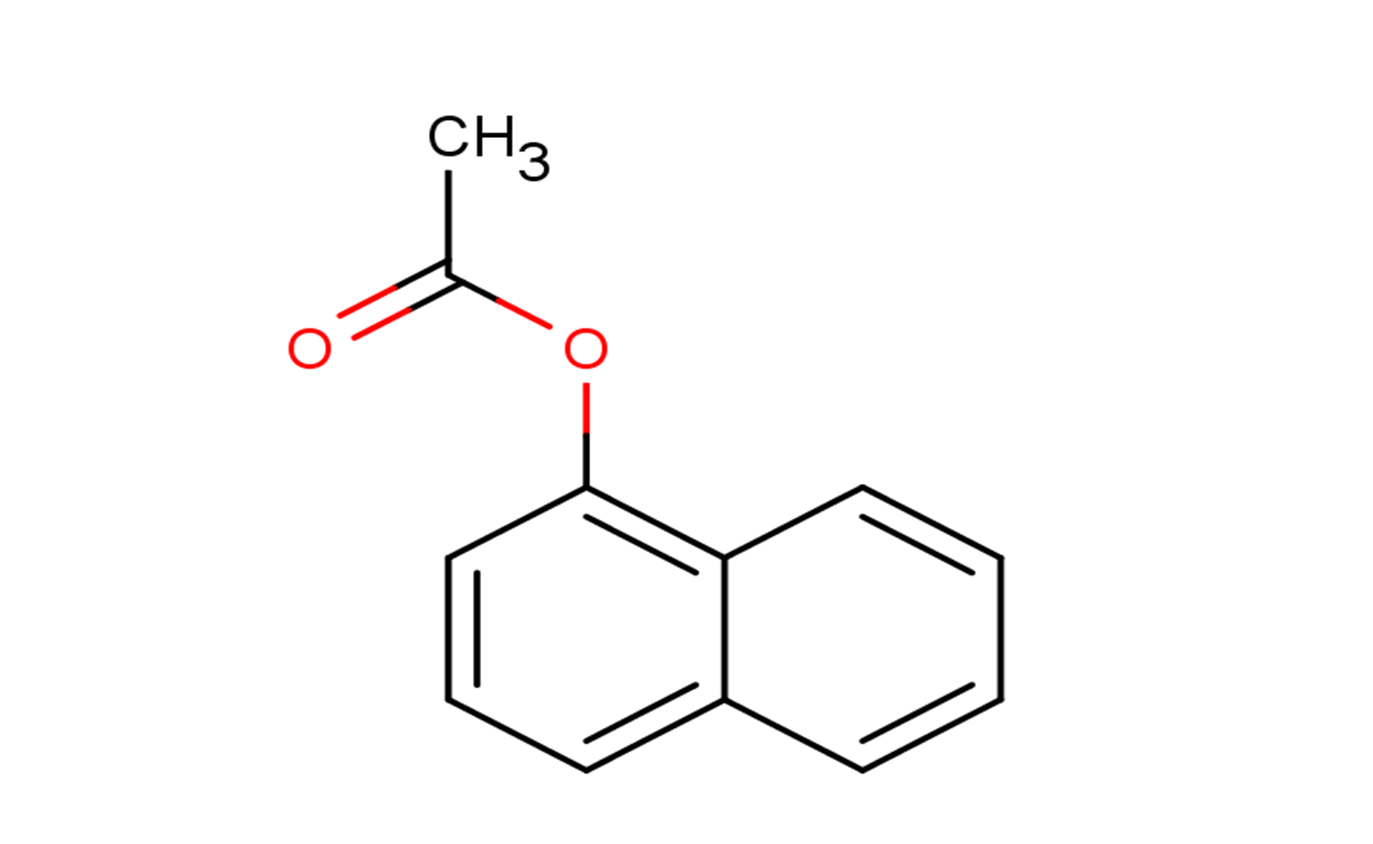
1-Naphthyl acetate
CAS No. 830-81-9
1-Naphthyl acetate ( —— )
Catalog No. M24821 CAS No. 830-81-9
1-Naphthyl acetate is usually used in a rapid staining method for identification of macrophages.?
Purity : >98% (HPLC)
 COA
COA
 Datasheet
Datasheet
 HNMR
HNMR
 HPLC
HPLC
 MSDS
MSDS
 Handing Instructions
Handing Instructions
| Size | Price / USD | Stock | Quantity |
| 500MG | 38 | In Stock |


|
| 1G | Get Quote | In Stock |


|
Biological Information
-
Product Name1-Naphthyl acetate
-
NoteResearch use only, not for human use.
-
Brief Description1-Naphthyl acetate is usually used in a rapid staining method for identification of macrophages.?
-
Description1-Naphthyl acetate is usually used in a rapid staining method for identification of macrophages.?1-Naphthyl acetate is a potent chromogenic substrate for the detection of erythrocyte acetylcholinesterase (AChE) activity.?It has the potential to detect organophosphorus pesticide poisoning.
-
Synonyms——
-
PathwayEndocrinology/Hormones
-
TargetAChR
-
RecptorAChE
-
Research Area——
-
Indication——
Chemical Information
-
CAS Number830-81-9
-
Formula Weight186.2
-
Molecular FormulaC12H10O2
-
Purity>98% (HPLC)
-
SolubilityDMSO:10 mM
-
SMILESCC(OC1=C2C=CC=CC2=CC=C1)=O
-
Chemical Name——
Shipping & Storage Information
-
Storage(-20℃)
-
ShippingWith Ice Pack
-
Stability≥ 2 years
Reference
1.Chowdhary S, et al. 1-Naphthyl acetate: A chromogenic substrate for the detection of erythrocyte acetylcholinesterase activity. Biochimie. 2018 Nov;154:194-209.
molnova catalog


related products
-
Varenicline
Varenicline is a Selective α4β2 nicotinic acetylcholine receptor partial agonist.
-
Atropine sulfate mon...
Atropine sulfate monohydrate is a competitive muscarinic acetylcholine receptor antagonist.
-
Trospium chloride
Trospium is a urinary antispasmodic.



 Cart
Cart
 sales@molnova.com
sales@molnova.com


